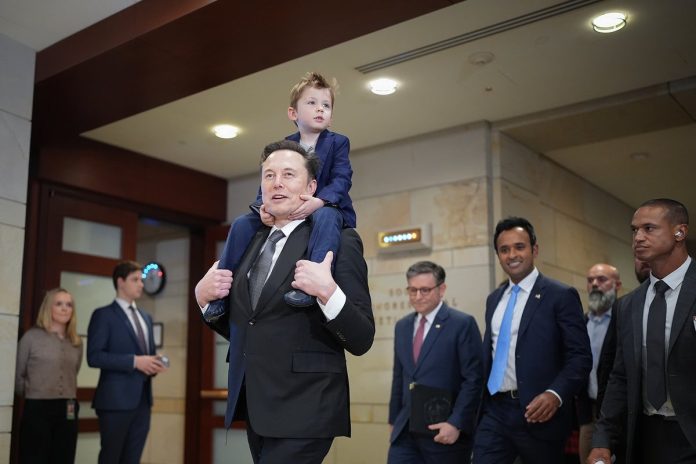The current season of change has been ushered in partly due to a rise in egg prices last summer, setting the stage for a constitutional winter. Amid efforts by the Federal Reserve to combat egg inflation, dissatisfied voters reinstated Donald Trump as the President. Upon taking office, Trump appointed Elon Musk and Vivek Ramaswamy, two tech billionaires, as efficiency czars in the Department of Government Efficiency (DOGE), proposing constitutional moves that could disrupt the legacy of James Madison, the “father of the Constitution.”
Trump campaigned on lowering grocery costs and portrayed the government as wasteful, promising to bring solutions to disgruntled citizens. His supporters, disenchanted with Bidenomics and bureaucratic inefficiencies, sought change. Previous presidents have also promised to tackle such issues, with Bill Clinton’s reinventing government initiative being a notable example.
Supporting Science Journalism
If you are enjoying this article, consider subscribing to support our award-winning journalism. Your subscription helps ensure the continuation of impactful stories about the discoveries and ideas shaping our world today.
In contrast, Trump’s agenda to deconstruct the administrative state fell short of its objective in his first term. Through DOGE, Trump aims to reform the bureaucracy with the help of business leaders, potentially leading to constitutional challenges.
DOGE’s approach risks creating constitutional issues rather than addressing administrative inefficiencies, as revealed in a Wall Street Journal article. The blueprint neglects congressional oversight and promotes a unitary executive theory that could undermine the delicate balance of power in the government.
To maintain this balance, DOGE should consider recommendations from public administration scholars and research groups to improve government efficiency while preserving the integrity of the civil service. The initiative must navigate judicial approvals and congressional scrutiny to avoid jeopardizing democratic values.
Efficiency is just one element of good governance, which must coexist with equity, competence, effectiveness, and accountability. A tech-focused culture aiming to streamline bureaucracy must also prioritize public safety, regulatory stability, and ethical governance.
Civil servants play a crucial role in government effectiveness, and efforts to politicize the bureaucracy through loyalty tests and administrative changes could hinder progress and deter qualified individuals from serving. The potential implementation of Schedule F could erode the merit-based civil service system established over decades.
The principles of democracy and separation of powers are at risk amid attempts to reform the bureaucracy. Musk and Ramaswamy’s strategies could revive patronage-based governance from the past, increasing income inequality and undermining the fabric of government.
As the country navigates through these challenges, preserving constitutional values and democratic norms remains crucial to avoid a constitutional crisis that could overshadow current concerns.
This is an opinion and analysis article, and the views expressed by the author or authors are not necessarily those of Scientific American.




